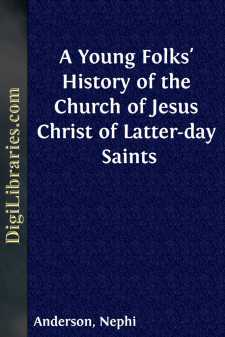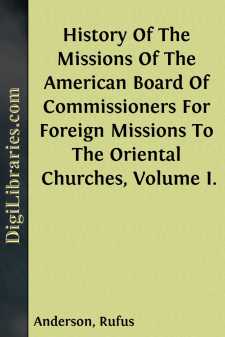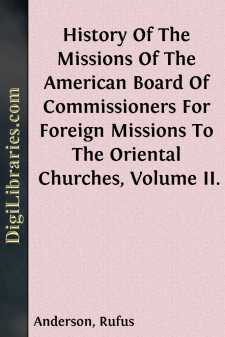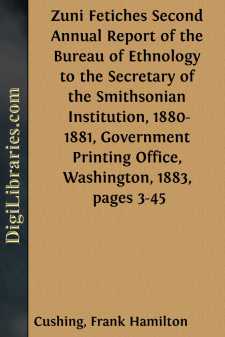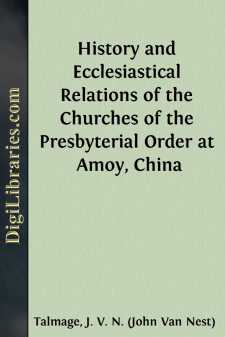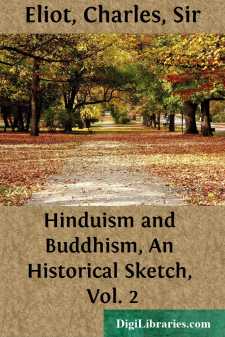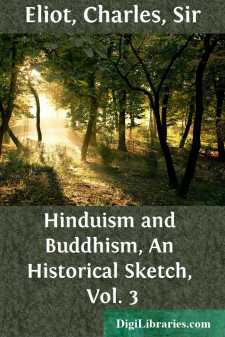Religion
- Agnosticism 2
- Antiquities & Archaeology 21
- Atheism 12
- Biblical Criticism & Interpretation 15
- Biblical Meditations 3
- Biblical Reference 1
- Biblical Studies 11
- Buddhism 8
- Christian Church 52
- Christian Education 5
- Christian Life 26
- Christianity 60
- Cults 2
- Devotional 6
- Eastern 2
- Education 4
- Eschatology 1
- Ethics 3
- General 60
- Gnosticism 1
- Hinduism 15
- History 28
- Holidays 10
- Inspirational 1
- Islam 8
- Judaism 3
- Leadership 1
- Meditations 3
- Monasticism 1
- Mysticism 11
- Philosophy 4
- Prayer 26
- Prayerbooks 5
- Religion & Science 12
- Sermons 54
- Spirituality 53
- Theism 2
- Theology 17
- Theosophy 15
Religion Books
Sort by:
by:
Nephi Anderson
To Parents and Teachers. Studying the history of our country creates patriotism and engenders loyalty. For the same reason, a study of the history of the Church of Jesus Christ of Latter-day Saints will implant in our boys and girls a love for its heroes, a loyalty to its principles, and an appreciation of its achievements. By a knowledge of the history of the Church, our young people will prize more...
more...
by:
Rufus Anderson
PREFACE. Missions to the Oriental Churches occupy a large space in the forty-nine volumes of the Missionary Herald, and in as many Annual Reports of the Board; and in view of the multitude of facts, from which selections must be made to do justice to the several missions, it will readily be seen, that their history cannot be compressed into a single volume. The Missions may be regarded as seven or...
more...
by:
Rufus Anderson
THE ARMENIANS. 1846-1855. Several European governments, and especially England, performed an important part in securing civil and religious freedom to the Protestant Armenians.[1] [1] This is impressively set forth in the Correspondence respecting the Condition of Protestants in Turkey, published by order of Parliament in 1851, pp. 154 folio. In March, 1846, Sir Stratford Canning, English Ambassador at...
more...
ZUÑI PHILOSOPHY. The Á-shi-wi, or Zuñis, suppose the sun, moon, and stars, the sky, earth, and sea, in all their phenomena and elements; and all inanimate objects, as well as plants, animals, and men, to belong to one great system of all-conscious and interrelated life, in which the degrees of relationship seem to be determined largely, if not wholly, by the degrees of resemblance. In this system of...
more...
by:
Neil Buchanan
HISTORICAL SURVEY. The second century of the existence of Gentile-Christian communities was characterised by the victorious conflict with Gnosticism and the Marcionite Church, by the gradual development of an ecclesiastical doctrine, and by the decay of the early Christian enthusiasm. The general result was the establishment of a great ecclesiastical association, which, forming at one and the same time...
more...
by:
Neil Buchanan
THE AUTHOR'S PREFACE TO THE ENGLISH EDITION. No theological book can obtain a place in the literature of the world unless it can be read both in German and in English. These two languages combined have taken the place of Latin in the sphere of Christian Science. I am therefore greatly pleased to learn that my "History of Dogma" has been translated into English, and I offer my warmest...
more...
CHAPTER I. PROVIDENTIAL PREPARATIONS FOR THE DISCOVERY OF AMERICA—SPIRITUAL REVIVAL THROUGHOUT CHRISTENDOM, AND ESPECIALLY IN THE CHURCH OF SPAIN. The heroic discovery of America, at the close of the fifteenth century after Christ, has compelled the generous and just admiration of the world; but the grandeur of human enterprise and achievement in the discovery of the western hemisphere has a less...
more...
HISTORY AND OF THE CHURCHES OF THE PRESBYTERIAL ORDER, AT The first Protestant Missionaries at Amoy arrived there in the year 1842. They were Dr. Abeel of the American Reformed Dutch Church, and Bishop Boone of the American Episcopal Church. After these there arrived Missionaries of the London Missionary Society, of the American Presbyterian Church, of the English Presbyterian Church, and others of the...
more...
by:
Charles Eliot
CHAPTER XVI MAIN FEATURES OF THE MAHAYANA The obscurest period in the history of Buddhism is that which follows the reign of Asoka, but the enquirer cannot grope for long in these dark ages without stumbling upon the word Mahayana. This is the name given to a movement which in its various phases may be regarded as a philosophical school, a sect and a church, and though it is not always easy to define...
more...
by:
Charles Eliot
CHAPTER XXXIV EXPANSION OF INDIAN INFLUENCE The subject of this Book is the expansion of Indian influence throughout Eastern Asia and the neighbouring islands. That influence is clear and wide-spread, nay almost universal, and it is with justice that we speak of Further India and the Dutch call their colonies Neerlands Indië. For some early chapters in the story of this expansion the dates and details...
more...


